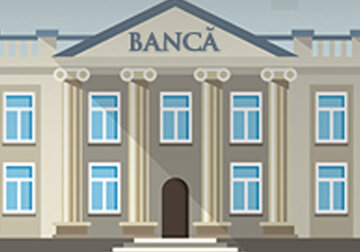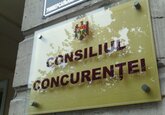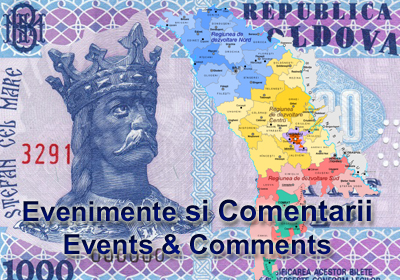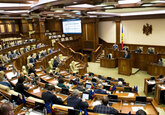
Direct lending to the government of Moldova by the National Bank is illegal, Expert-Grup states
This is how the experts of Expert-Grup Independent Analytical Center commented on the idea, voiced by some politicians, regarding a 20 billion lei loan to be granted to the government by the National Bank. Expert-Grup analysts recalled that article 41 of the Law on the National Bank of Moldova explicitly prohibits the provision of loans to the state. The article notes that the NBM does not provide loans and guarantees in any form to the state or its bodies, including by purchasing government securities in the primary market or providing overnight loans. “A possible loan from the NBM to the state, especially in such a large amount (about 10% of GDP), will create inflationary pressure, devalue the national currency, undermine economic growth, reduce jobs and worsen the living conditions of the population. The reason is that such a loan will force the Central Bank to print national currency (MDL), which will increase the volume of lei in the economy without any coverage, which will put pressure on the national currency. To stabilize the situation, the NBM will have to sterilize this excess liquidity by tightening monetary policy and selling foreign exchange from foreign exchange reserves. This will exacerbate the current economic crisis in Moldova, which will lead to the loss of tens of thousands of jobs and the bankruptcy of thousands of enterprises,” said Expert-Grup. They noted that the image of Moldova in front of potential creditors or investors, both in the country and abroad, will suffer even more. “Thus, possible direct lending by the NBM to the government will increase the country's risks and worsen the perception of investors, creditors and development partners in relation to Moldova,” analysts of Expert-Grup said. In their opinion, in particular, this will deprive Moldova of other forms of financing, both with immediate and long-term effect: it will jeopardize the prospects of the memorandum with the IMF, which is associated with other concessional financing from the European Union and other strategic partners of the country; will raise interest rates on domestic and foreign loans and, accordingly, will increase budgetary expenditures for attracting this financing; will jeopardize the idea of issuing Eurobonds in foreign capital markets; will undermine the investment attractiveness, especially for strategic investments, due to the increase in inflationary, currency and macroeconomic risks, which are seriously taken into account by investors. In addition, this will destabilize the balance sheet established in the financial system by raising interest rates and by the inevitable rise in the cost of loans to individuals and companies; will question the refinancing of external debt if this mechanism contradicts the norms promoted by the IMF. Expert-Grup stressed that in general, the mentioned initiative will bring losses to the state budget. Against the background of increased country risks, as well as a tighter monetary policy aimed at reducing the amount of uncovered money in the economy, the cost of loans attracted by the government will increase. This will immediately lead to an increase in interest rates on government securities, which the Ministry of Finance uses on an ongoing basis to refinance previously taken loans, as well as to finance the budget deficit. Accordingly, the cost of servicing the state debt will increase, which means that hundreds of millions of lei, instead of investments or social payments, will be spent on paying high interest rates on the state debt. In addition, if the NBM loan to the government is concluded at an interest rate below the market rate, it will affect the capitalization of the National Bank, which will require transfers from the state budget to recapitalize it. Experts point out that the NBM's ability to maintain Moldova’s macro-financial stability will also be affected. The consequence of a possible loan to the government from the NBM will be a reduction in the volume of foreign exchange reserves. As a result, the NBM will have fewer opportunities to mitigate possible negative shocks in the economy. Expert-Grup urged politicians to use legal and real sources to finance much-needed programs to support the population and business, especially in the context of new restrictions and the state of emergency. In this regard, the experts reiterated their recommendations, which they had been promoting since the beginning of the pandemic crisis and which remain relevant today, on the basis of which a similar amount of money (about 20 billion lei) can be mobilized without macroeconomic risks. The matter concerns easing monetary policy by reducing the required reserve ratio from the current level of 30% (for national and foreign currency) to 15%. This would make it possible to mobilize about 10-11 billion lei on the accounts of commercial banks, which could be invested in government securities. “Considering the banking system’s excess liquidity of about 10 billion lei, which can be doubled after the reduction of the required reserves (mentioned above), it is advisable to increase the issue of government securities in order to redirect this excess liquidity to an extensive program of support totaling 20 billion lei to companies and the population,” the experts said. In their opinion, as soon as liquidity in the banking system may be exhausted, the NBM can purchase government securities in the secondary market (more actively use REPO operations) in order to support the government in financing the anti-crisis program. The Expert-Grup considers that in order to support the redirection of liquidity from the banking system to the real sector of the economy, it is necessary to provide state guarantees for loans that finance the flow of cash provided to companies whose activities were suspended by restrictive measures established for the period of the state of emergency. Analysts point out that improving relations with development partners will allow receiving about $530 million, agreed under the new program with the IMF, 50 million euros in macro-financial assistance from the EU and other external resources that can be obtained in exchange for reforms carried out in Moldova in accordance with international agreements. This would make it possible to mobilize more than 10 billion lei on preferential terms. // 05.04.2021 – InfoMarket







